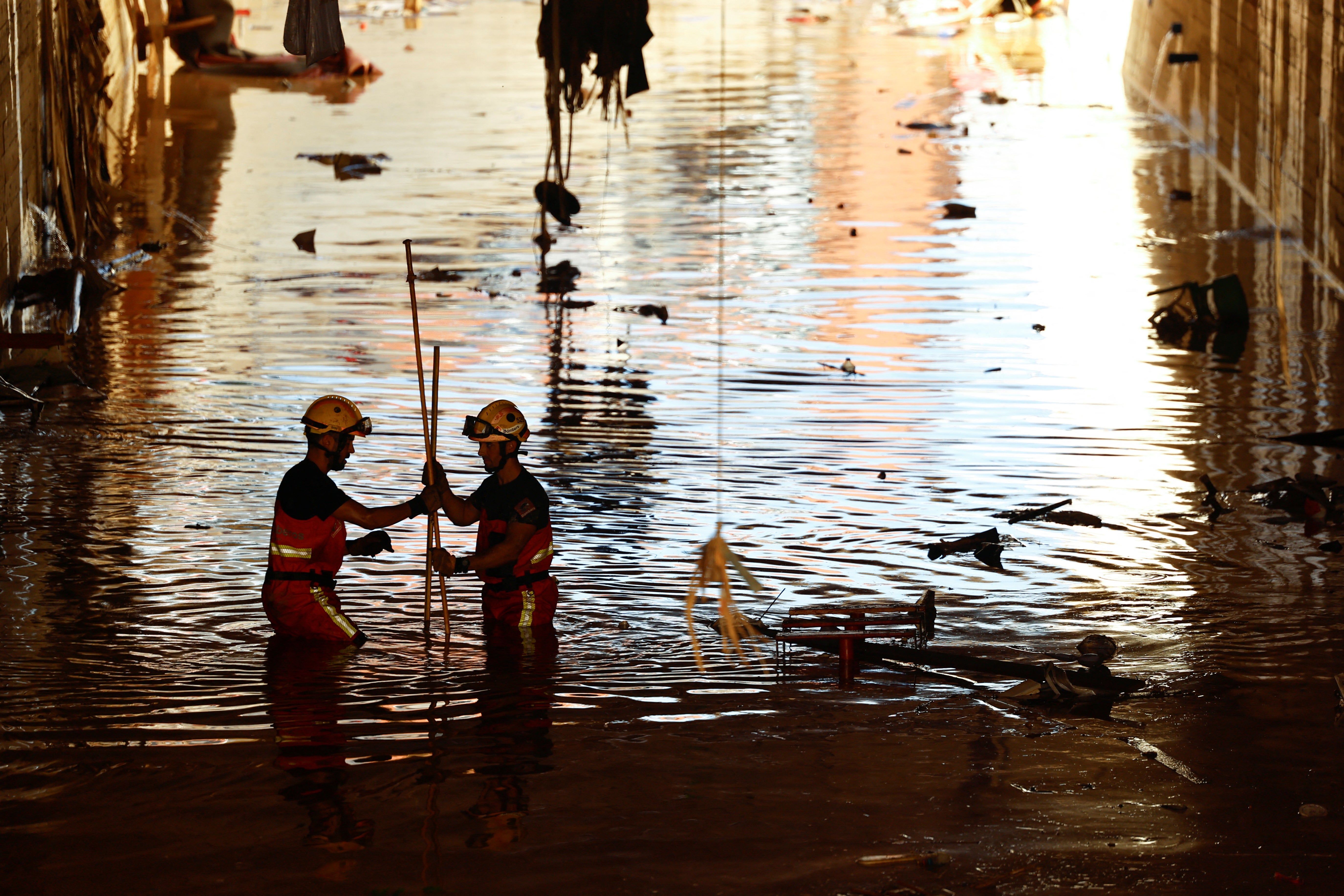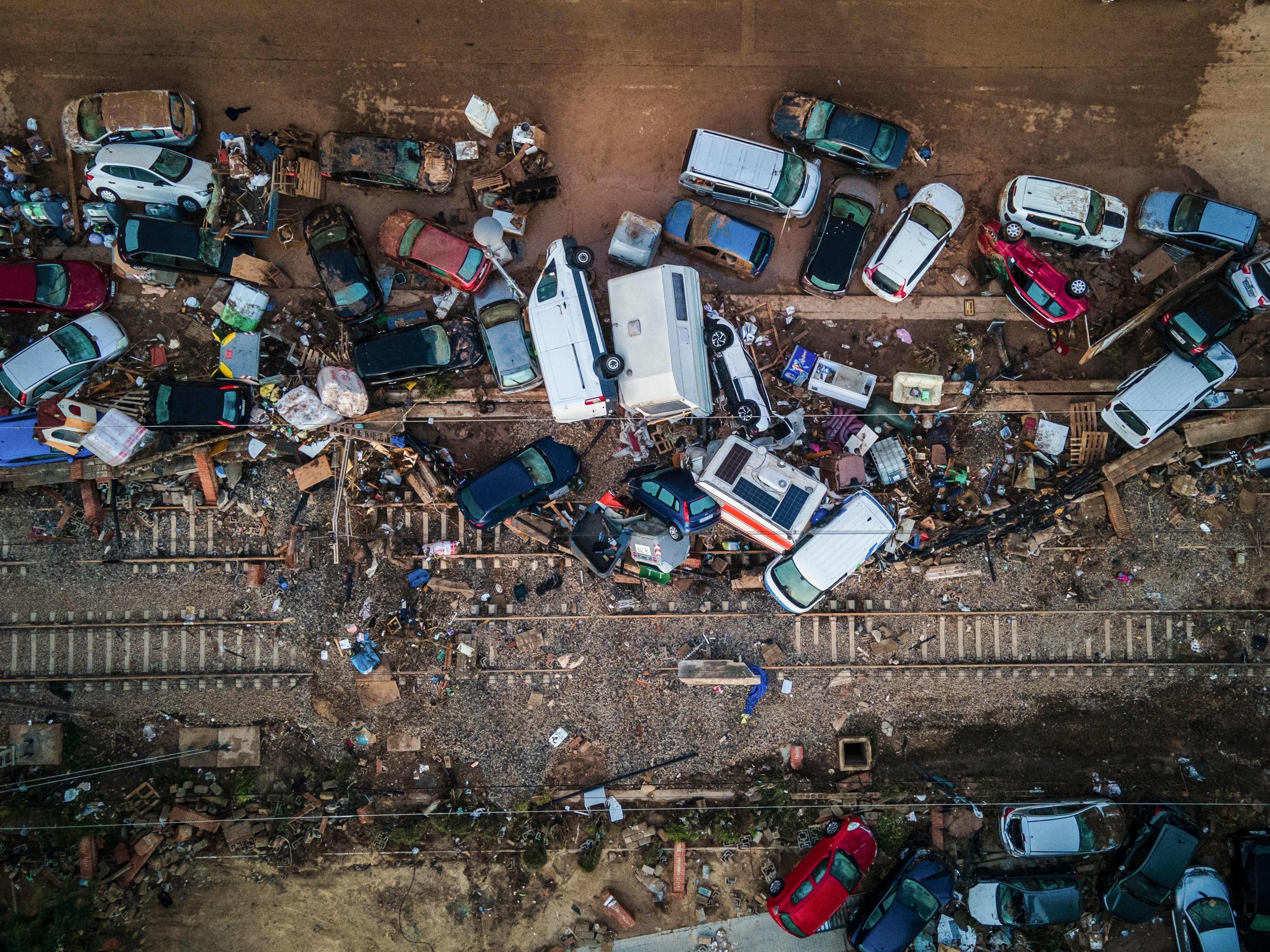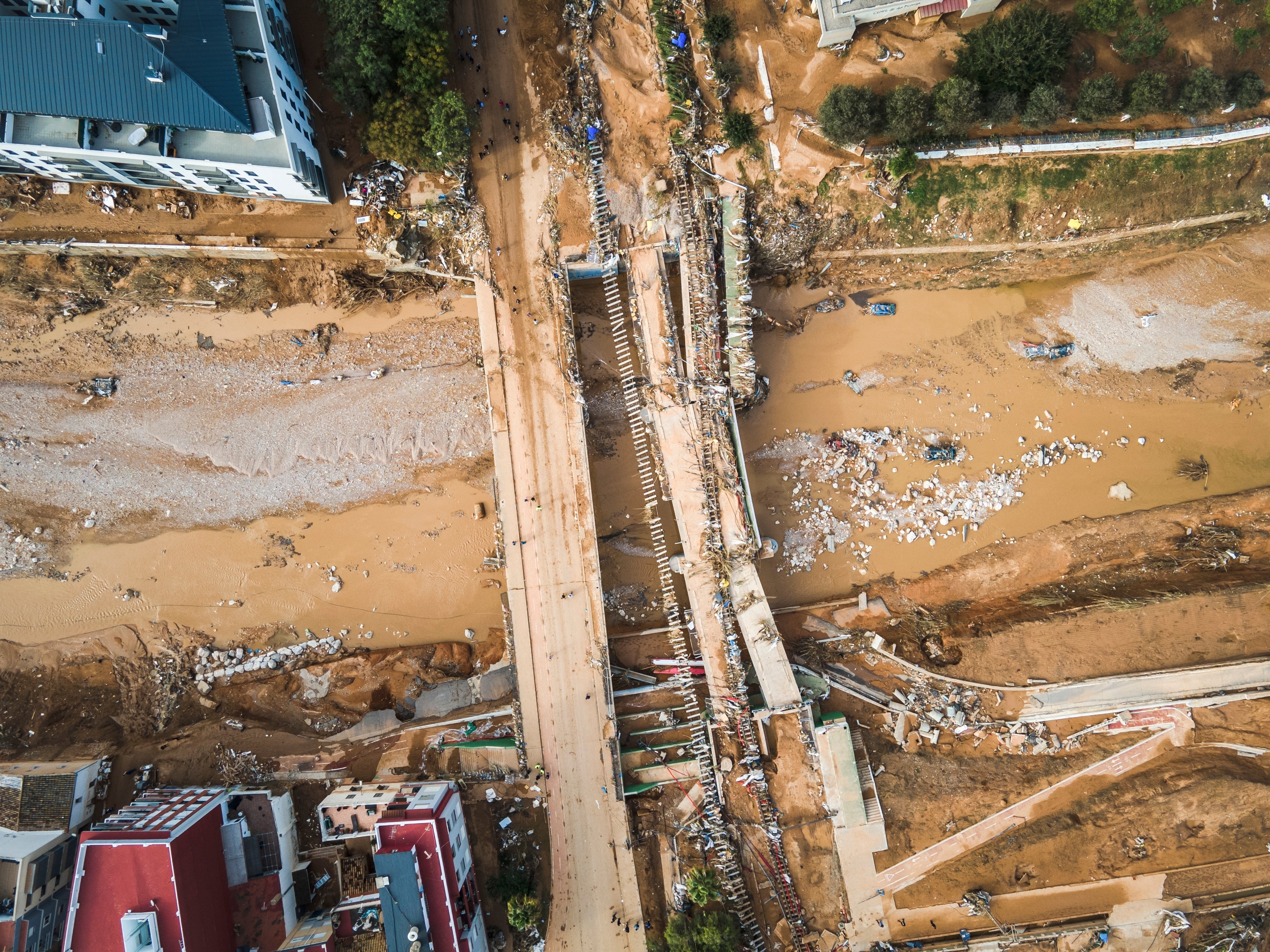Spain deploys 5,000 more soldiers as death toll from devastating floods hits 211
An unknown number of people remain missing while tourist hotspot Majorca remains on lockdown
Your support helps us to tell the story
From reproductive rights to climate change to Big Tech, The Independent is on the ground when the story is developing. Whether it's investigating the financials of Elon Musk's pro-Trump PAC or producing our latest documentary, 'The A Word', which shines a light on the American women fighting for reproductive rights, we know how important it is to parse out the facts from the messaging.
At such a critical moment in US history, we need reporters on the ground. Your donation allows us to keep sending journalists to speak to both sides of the story.
The Independent is trusted by Americans across the entire political spectrum. And unlike many other quality news outlets, we choose not to lock Americans out of our reporting and analysis with paywalls. We believe quality journalism should be available to everyone, paid for by those who can afford it.
Your support makes all the difference.The death toll after flash flooding wreaked devastation in Spain has reached 211, as the prime minister announced that 5,000 additional soldiers had been deployed to assist the rescue operation.
An unknown number of people remain missing after the country suffered its deadliest natural disaster in living memory, which saw heavy rainfall wash away houses and cars in the eastern and central regions.
On Saturday, rescuers were still searching for bodies in stranded cars and sodden buildings on Saturday, four days after the storm which has devastated the country.
Speaking after chairing a meeting of the flood crisis committee, prime minister Pedro Sanchez has announced that 5,000 more police officers were also being sent to Valencia, the worst-hit area.

“It is the biggest operation by the Armed Forces in Spain in peacetime,” Mr Sanchez said. “The government is going to mobilize all the resources necessary as long as they are needed.”
At present, there are some 2,000 soldiers involved in the emergency work, as well as almost 2,500 Civil Guard gendarmes - who have carried out 4,500 rescues during the floods - and 1,800 national police officers.
Thousands of volunteers are helping to clean up the thick mud that is covering everything in streets, houses and businesses in the hardest-hit towns.
“There are still dozens of people looking for their loved ones and hundreds of households mourning the loss of a relative, a friend or a neighbour,” Mr Sanchez said in a televised address on Saturday morning.
“I want to express our deepest love to them and assure them that the government of Spain and the entire state, at all its different administrative levels, is with all of them.”

He stressed that the rescue operation was prioritising the recovery of the dead, and added that specialist forensic personnel and mobile morgues were already in the disaster zone and would work “day and night; night and day for as long as it takes”.
Hopes of finding survivors were boosted when rescuers found a woman alive after three days trapped in a car park in Montcada in Valencia, with residents bursting into applause.
Thousands of volunteers flocked to Valencia’s City of Arts and Sciences centre for the first coordinated clean-up organised by regional authorities. The venue has been turned into the nerve centre for the operation.
In Valencia’s Picanya suburb, shop-owner Emilia, 74, said “We feel abandoned, there are many people who need help. It is not only my house, is all the houses and we are throwing away furniture, we are throwing away everything.
“When is the help going to come to have fridges and washing machines? Because we can’t even wash our clothes and we can’t even have a shower.”

Nurse Maria Jose Gilabert, 52, who also lives in Picanya, said: “We are devastated because there is not much light to be seen here at the moment, not because they are not coming to help, they are coming from all over Spain, but because it will be a long time before this becomes a habitable area again.”
During his speech, Mr Sanchez acknowledged the growing public anger that was mounting over the authorities handling of the flooding, saying: “I know we have to do better and give it our all.”
Many have questioned why the Valencian government did not send out an emergency alert until after 8pm on Tuesday, with the prime minister stressing that there would be time later to assess what went wrong and if lessons could be learnt.
The storm triggered a new weather alert in the Balearic Islands, Catalonia and Valencia, where rains are expected to continue during the weekend.
Scientists say extreme weather events are becoming more frequent in Europe, and elsewhere, due to climate change. Meteorologists think the warming of the Mediterranean, which increases water evaporation, plays a key role in making torrential rains more severe.

Join our commenting forum
Join thought-provoking conversations, follow other Independent readers and see their replies
Comments